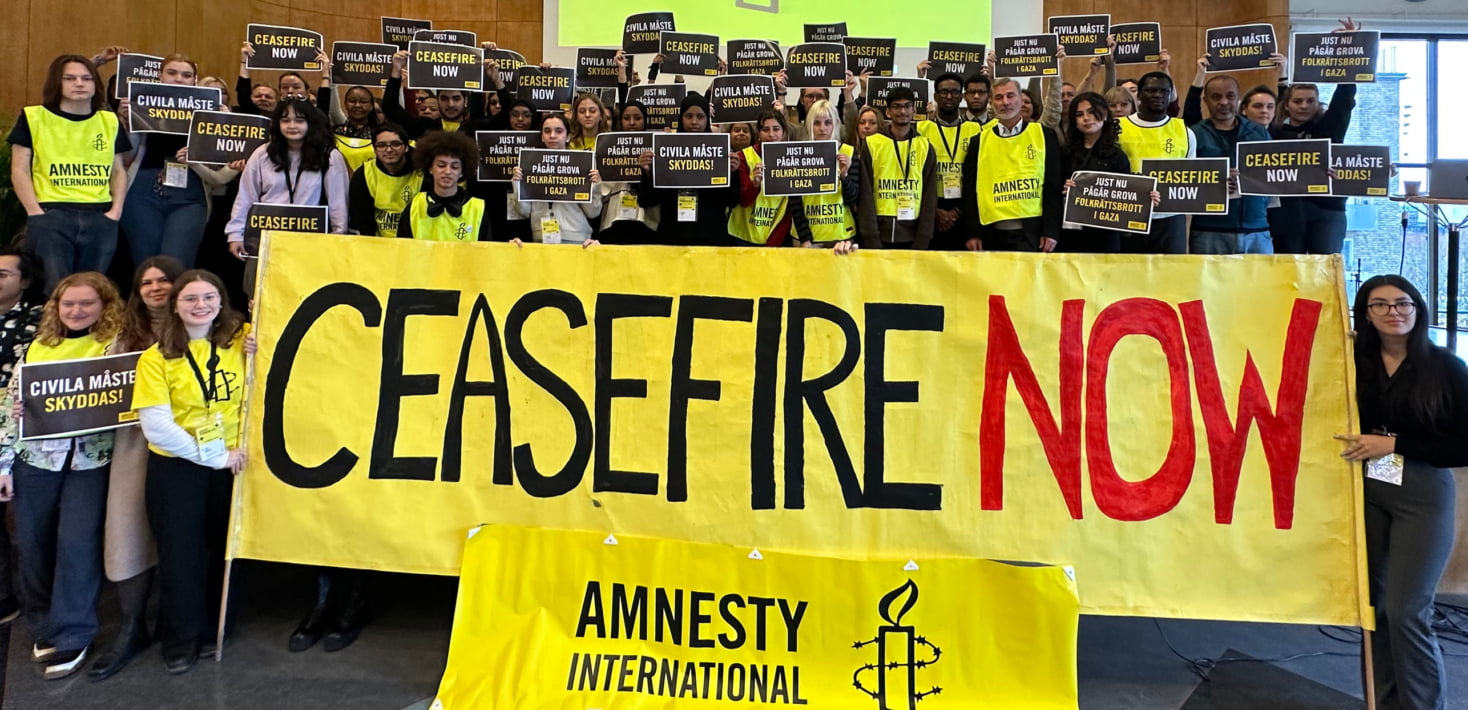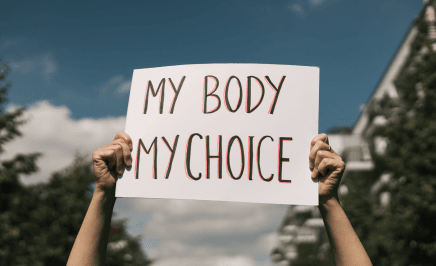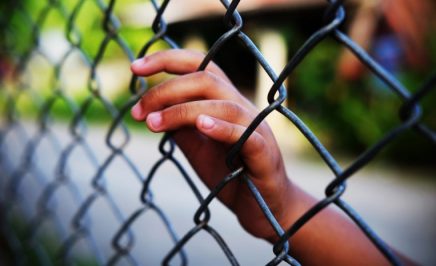Announcements by a number of European countries and the European Commission to restrict funding to Palestinian human rights organizations would further damage the European Union’s credibility as a self-proclaimed champion of human rights. Amnesty International and 95 other organizations have published a letter to the EU and member states expressing concern about the impact of such discriminatory measures on human rights.
“Human rights in Israel and the Occupied Palestinian Territories (OPT) are already in deep crisis. Palestinian and Israeli organizations in the region do crucial work to protect people’s rights. Some act as watchdogs of Israeli authorities’ systematic violations of Palestinians rights with impunity, others provide pro-bono legal representation for victims who would be otherwise left with no support in their quest for justice. Restricting the funding of Palestinian organisations only is discriminatory and would silence them by hampering their vital work and would further deprive victims of any prospect of protection,” said Eve Geddie Director of Amnesty International’s European Institutions Office.
Several European countries including Austria, Denmark, Germany, Sweden and Switzerland, as well as the European Commission have taken measures to suspend or restrict their funding to Palestinian civil society organizations on the basis of unfounded allegations that funding has been diverted to ‘terrorist organizations’ or to used for ‘incitement to hatred and violence’. Such allegations mobilize longstanding racist and Islamophobic stereotypes that portray Arab and Muslim people as prone to violence and potential terrorists. Some measures to suspend funding to Palestinian NGOs long predated the attacks of 7 October 2023, in which members of Hamas and other armed groups committed war crimes and other violations of international law, including unlawful killings, took civilians hostage, and launched indiscriminate rocket attacks into Israel. However, restrictions have since intensified.
EU double standards
The European Commission announced on 21 November 2023 that ‘no evidence has been found to date that money has been diverted for unintended purposes.’ Despite this, it announced the introduction of ‘anti-incitement’ contractual clauses in all new contracts with Palestinian NGOs, which oblige funding recipients to state that they will not incite hatred, and subject them to “third-party monitoring” to ensure compliance. While the clause is not inherently problematic, applying such a clause only to Palestinian NGOs stigmatizes Palestinians, while emboldening others to incite hate.
“It is essential for European government donors to ensure accountability and transparency of all partners. But exclusively singling out Palestinians, as well as the timing and rationale of these announcements to restrict funding raises worrying questions. Why are donors restricting funding only to Palestinian NGOs? And why does Palestinian civil society organizations who are documenting human rights violations by the Israeli government have to repeatedly defend themselves from accusations of antisemitism and supporting violence against the state of Israel, when repeated investigations found no such evidence?” said Eve Geddie.
It is vital for the EU and member states to combat all forms of racism and other forms of discrimination, including antisemitism, islamophobia, anti-Arab, and anti-Palestinian racism and take all necessary measures to prohibit advocacy of hatred that constitutes incitement to discrimination, hostility or violence. Recipients of EU money were already required to respect these principles. Adding “anti-incitement” clauses to contracts of Palestinian organizations only and subjecting them to “third party monitoring” smacks of political posturing, is discriminatory and reinforces racist assumptions towards Palestinians and those who defend Palestinians’ human rights.
Sweden for example, has also stated that in the future it will require Palestinian partners to condemn Hamas. Requiring an organisation to express such a condemnation and making funding conditional to that, is an attack on the human right to freedom of expression and association, among others, and insofar as it targets exclusively organizations working on Palestine, it is discriminatory.
Meanwhile, despite egregious calls for killing, forcibly displacing or using nuclear weapons against Palestinians by Israeli officials and NGOs, as well as repeated deadly attacks against civilians by Israeli forces and settlers, and even NGOs building illegal settlements in occupied Palestinian lands, including those denounced by the EU, there are no similar requirements on Israeli organizations or governmental bodies cooperating with Sweden to condemn these crimes. This blatant double standard is not only discriminatory, but also demonstrates a concerningly selective approach to human rights.
Misuse of antisemitism as a tool of suppression
Combatting antisemitism and hate speech is vital, but over the last few years, Israeli authorities and officials from a number of countries in Europe — especially Germany and Hungary— and EU Commissioners Várhelyi and Schinas, have used unfounded allegations of antisemitism to silence criticism of Israeli violations of international law, including the ongoing system of apartheid imposed on Palestinians by Israel. Even now, as Israeli forces have killed at least 14,128 civilians, over a third of whom are children, and forcibly displaced more than 1.2 million Palestinians, allegations of antisemitism are being used to silence, and in some cases criminalize, those, including Jewish activists, expressing solidarity with Palestinians and advocating for Palestinians rights. Israeli officials have even used allegations of antisemitism to justify the killing of Palestinian civilians by alleging that Palestinians in Gaza support Nazi ideology.
“In the face of rising antisemitism, European leaders have an obligation to take measures to protect Jewish populations, however conflating advocacy for Palestinians’ rights with antisemitism and singling out Palestinians and Arabs for the rise of antisemitism are counterproductive and only fuel further hatred,” said Eve Geddie.
Recent unsubstantiated and discriminatory statements by German, Austrian and Hungarian politicians have stigmatized migrants from Muslim majority countries by blaming them for rising antisemitism in Europe. The EU establishing extra requirements on Palestinian recipients of funding only, is based similarly on discriminatory and racist stereotypes.
“European states restricting funding to organizations championing human rights in Israel and the OPT is clear evidence of some European states’ double standards. The credibility of European states who claim to champion human rights has already been already weakened by their failure to call for a ceasefire and by continuing to arm Israel as it kills thousands of Palestinians with impunity. These discriminatory funding restrictions are damaging their credibility even further,” said Eve Geddie.
“We call on the EU, member states and other donors to ensure that funding to Palestinians is resumed, without implementing unnecessary and discriminatory restrictions. If the EU believes that the current safeguards in place are not sufficient to address incitement, then they should adopt stronger safeguards to all contracts including to Israel and within Europe, instead of singling out Palestinians on racist grounds and without emboldening or endorsing policies and laws which undermine human rights.”





